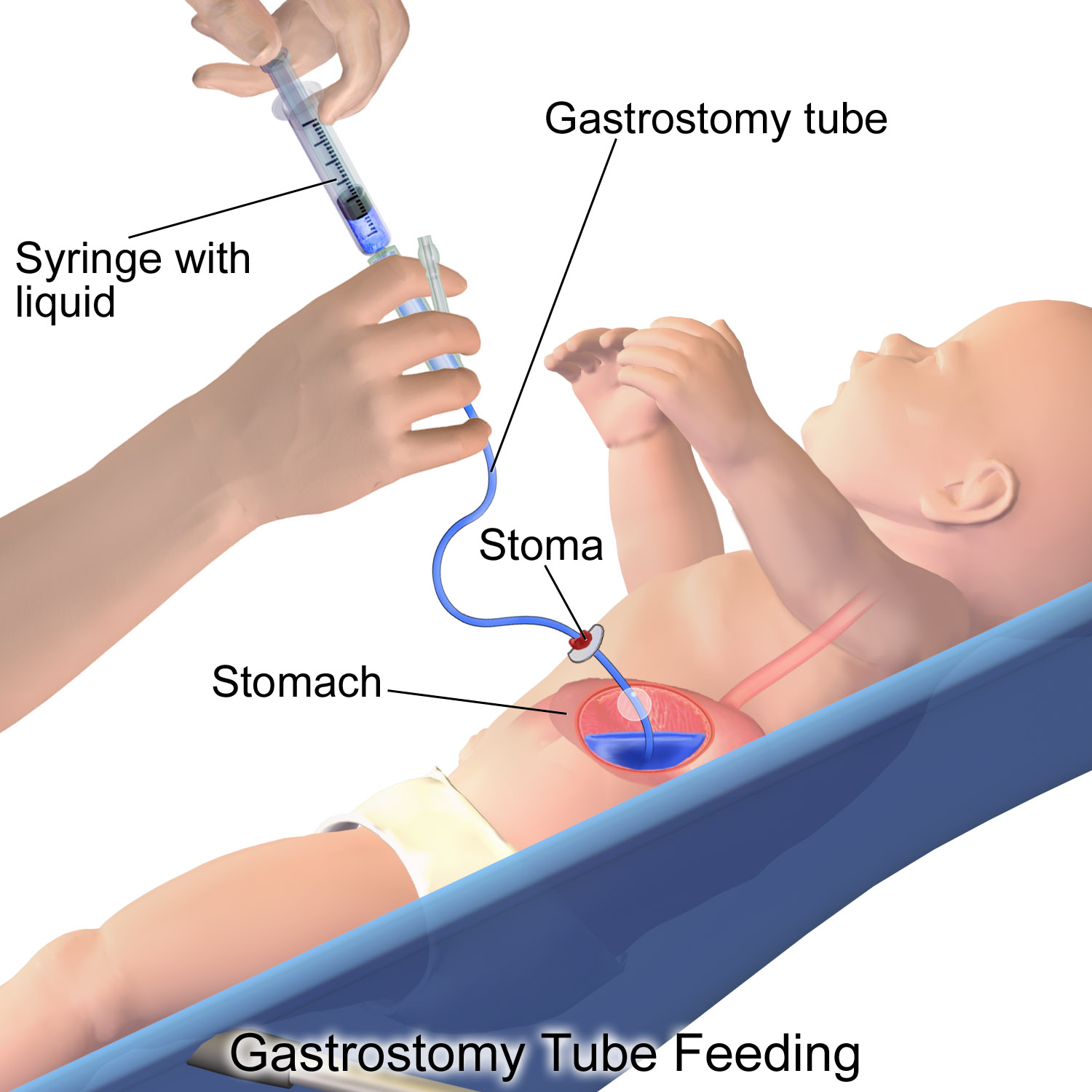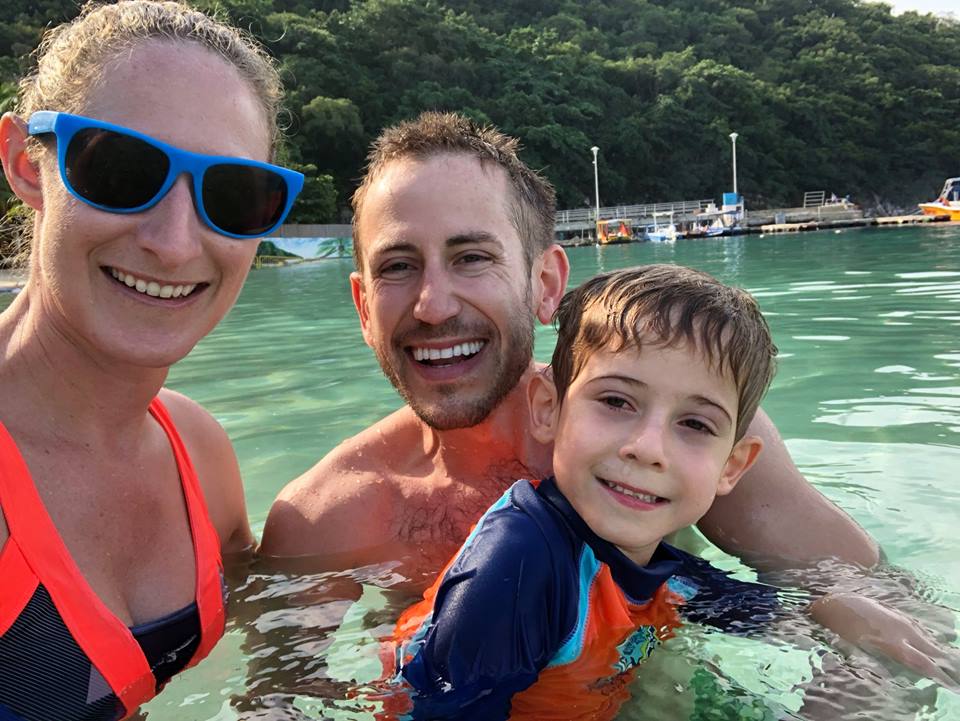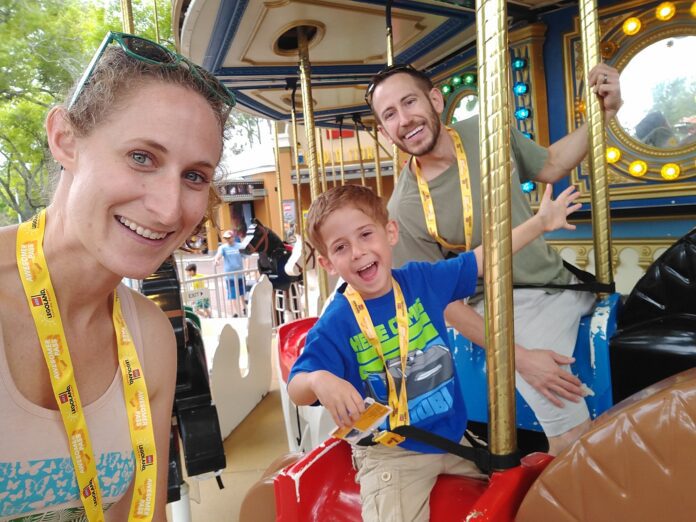Some moms stress over making Pinterest-worthy school lunches. You know… the ones in colorful bento containers with perfectly chopped animal-shaped sandwiches. Nicole O’Brien, mother to 5-year-old Finn, may not be a Pinterest mom, but she absolutely worries about lunchtime. Her concern, however, isn’t meal creativity but rather if her son will be able to eat at all. His nourishment is dependent on the school’s ability and willingness to meet his special dietary needs.
Finn’s food isn’t served on a tray by cafeteria staff; it is administered through his gastrostomy tube by a school nurse. Typically pushed through a syringe or pump, tube feedings are relatively easy to perform. Yet, the routine process has been complicated by confusion surrounding school policy. Administrators at Dillard Street Elementary in Winter Garden, Florida told Nicole and her husband, Dr. Kevin O’Brien, that policy mandates tube feedings be performed only by a Licensed Practical Nurse (LPN) or Registered Nurse (RN). So when the school nurse doesn’t report to campus, Nicole, an environmentalist, is forced to leave work so Finn won’t go hungry. “For the most part, we have had a nurse assigned to the school who can perform this duty. However, I have been called in five times this school year because there was not a float nurse available to cover when our assigned nurse was out. We are currently at the mercy of the availability to obtain a float nurse,” Nicole shared with AmeriDisability. As it turns out, according to Florida law, that actually may not be the case.
Special Needs Can Be Especially Complicated
Finn’s story, as Nicole describes it, has been “complicated” since the beginning. During a 20-week anatomy scan, doctors discovered that Finn was extremely small for his gestational age. Then, at 29 weeks, Nicole was diagnosed with HELLP syndrome, a life-threatening pregnancy complication usually considered to be a variant of preeclampsia. Within hours, Finn was born via emergency C-section at a fragile 1 pound, 11.5 ounces. He spent 4.5 months in the neonatal intensive care unit (NICU) and underwent four surgeries before turning two.
Attributed to his premature birth and lesser gestational age, “Finn developed major feeding difficulties. He was diagnosed [with] failure to thrive at 12 months old and a feeding tube was surgically inserted at 17 months,” Nicole explained. According to Johns Hopkins Medicine, children are diagnosed with failure to thrive when their weight or rate of weight gain is significantly below that of other children of similar age and sex. Children may appear dramatically smaller or shorter than others of the same age. “He had so many tubes down his throat for so long in the NICU and had such extreme reflux that he developed a huge oral aversion. Eating is a very unpleasant chore for him,” she adds. About 60% of Finn’s nutrition is taken via the tube, and the remainder consumed through purees and smooth-textured foods like yogurt, grits and mashed potatoes. “When we try to reduce his dependency on the tube, he doesn’t grow,” Nicole says.
Still, Finn is thriving in so many ways thanks to years of occupational therapy, speech therapy and intensive feeding therapy. He transitioned well from Early Steps (Florida’s early intervention program) to a typical voluntary prekindergarten (VPK) classroom with an Individualized Education Program (IEP). Just like any other little boy, Finn likes to read books and play with Legos, dinosaurs, Transformers, Hot Wheels and trains. “He loves going on adventures and we have not let his tube feeding needs slow us down. We go camping, to the beach and take vacations,” affirms Nicole, who describes her son as happy, friendly and silly.

Photo credit: differencebetween.net
A Not So Complicated School Policy
Florida Statute 1006.062 addresses the administration of medication and provision of medical services by district school board personnel. This particular law includes verbiage that’s both a barrier and a solution for Finn and children like him. In fact, the law includes contradictory guidelines, stating: (a) Nonmedical district school board personnel shall not be allowed to perform invasive medical services that require special medical knowledge, nursing judgment, and nursing assessment; (b) Nonmedical assistive personnel shall be allowed to perform health-related services upon successful completion of child-specific training.
As it turns out, staff at Dillard Street Elementary identified willing nonmedical individuals, and Dr. O’Brien is a licensed pediatrician who, obviously, is willing to provide training at no cost to the school. After learning that Dillard Street’s assigned nurse would be on leave for the remainder of the school year, Nicole asked school and district representatives to immediately champion this necessary effort. Her email, in part, read: “It is unacceptable to not have someone else available to perform the task of gastrostomy tube feeding. Availability of nutrition to my son is paramount to his education.”

The O’Brien’s feel like they’re in a trying position because, for the most part, they’ve been satisfied with Finn’s educational opportunities. “Our frustration surrounding this situation is by no means an indictment on the rest of the services and support that Finn has received at Dillard Street Elementary. To the contrary, we are extremely pleased with his teachers acting as his advocates, his IEP and the progress they have helped him make, and all of the support staff at Dillard Street,” Dr. O’Brien said. Nicole added, “Our representative, Melissa Byrd, and our school principal, Carol Russ, both responded promptly to my inquiry on the matter. It is perhaps because of our good rapport with OCPS [Orange County Public Schools] that we have high hopes for a speedy resolution.” When AmeriDisability reached out directly to OCPS, a media spokesperson responded, “Pursuant to FERPA [Family Educational Rights and Privacy Act] we cannot answer this question.” While AmeriDisability respects the district’s position to protect the privacy of families, the issue at hand is really about the district’s understanding and implementation of the law and not, per se, about Finn or any other child.
Food for Thought
Regarding a resolution, Nicole offers, “I think the school district needs to either ensure that nursing staff is always available for every school, or ensure that their policy for what kinds of medications and treatment can be provided by nonmedical personnel matches the needs of their population. The Florida Statute and Florida Administrative Code allows for nonmedical staff to be designated and trained to perform certain nursing-like tasks. If our school district cannot provide enough nursing staff to handle the needs of its students, then it must take a serious look at giving schools the ability to designate and train other staff to assist the students when appropriate and safe.”
While the disability-related issue may not be the same, the struggles of the O’Brien family are indeed comparable to those experienced by other families impacted by special needs of any kind. “I have had to spend a lot of time advocating for Finn’s care in many aspects, and a parent should not have to worry about their child going hungry during the school day,” said Nicole, adding, “We are privileged in that we have the flexibility to be able to interrupt our day to head to the school, but I am sure many families do not have this luxury. I am advocating not only for our family but for those others who may be experiencing similar issues.” To keep up with the O’Brien’s, follow Shark Finn’s Voyage on Facebook.
***Update***
Following the publication of this article on 5/15/19, the O’Brien family and AmeriDisability continued to press OCPS for answers. A week after this report, OCPS confirmed that Dillard Street Elementary would rely on an agency called ReadyNurse to staff substitute nurses for the remainder of the 2018-2019 school year and, thus, aid Finn O’Brien.
OCPS confirmed in a statement that as of 3/20/19, only 85-out-of-196 schools have an LPN or an RN. Because that potentially leaves a significant gap, AmeriDisability again asked if OCPS would be willing to allow non-medical personnel to perform health-related services, as defined in the statute. A media representative responded, “Yes, we are working on making that happen for next school year [2019-2020]: for procedures defined in the statute as allowable. However, this would be contingent on non-medical staff being willing and able to do the procedure and medical staff agreeing to be accessible during their absence.”
Kudos to the O’Brien family for their advocacy. This is a great reminder of our power to create change and inclusion!
Photos courtesy of Nicole O’Brien unless otherwise noted.
The information in this article is not intended as medical guidance.






